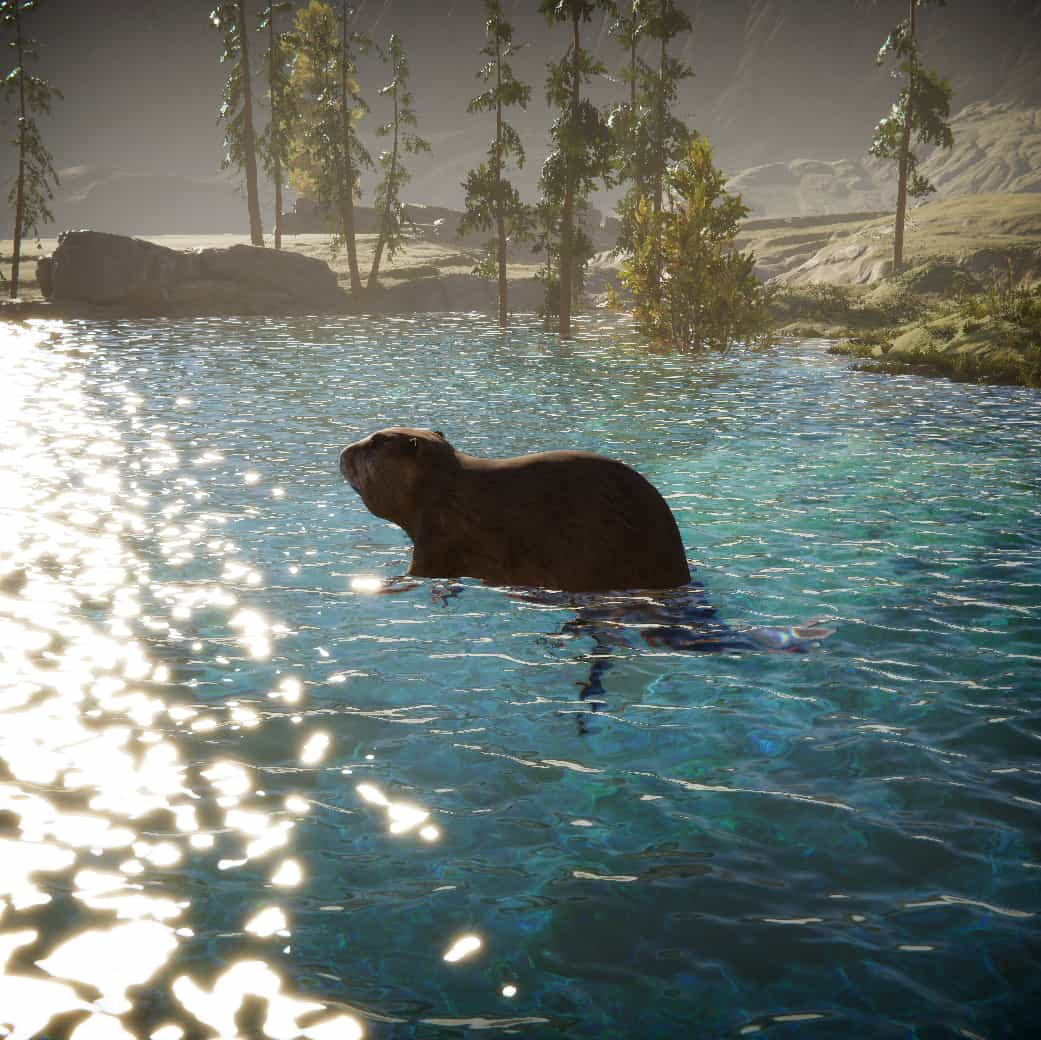BEAVER WORLD BEAVER WORLD BEAVER WORLD BEAVER WORLD BEAVER WORLD BEAVER WORLD BEAVER WORLD BEAVER WORLD BEAVER WORLD BEAVER WORLD BEAVER WORLD BEAVER WORLDBEAVER WORLD BEAVER WORLD BEAVER WORLD BEAVER WORLD BEAVER WORLD BEAVER WORLD BEAVER WORLD BEAVER WORLD BEAVER WORLD BEAVER WORLD BEAVER WORLD BEAVER WORLDBEAVER WORLD BEAVER WORLD BEAVER WORLD BEAVER WORLD BEAVER WORLD BEAVER WORLD BEAVER WORLD BEAVER WORLD BEAVER WORLD BEAVER WORLD BEAVER WORLD BEAVER WORLDBEAVER WORLD BEAVER WORLD BEAVER WORLD BEAVER WORLD BEAVER WORLD BEAVER WORLD BEAVER WORLD BEAVER WORLD BEAVER WORLD BEAVER WORLD BEAVER WORLD BEAVER WORLD

PROJECT OVERVIEW
Place-based 3D Environmental Education Game, Created with UBC's Centre for Culture and Technology to Promote Ecological Awareness
TOOLS
- Unity 3D
- HDRP, Version Control, Terrain Tools
- The Vegetation Engine
- KWS Water System
- Malbers Animal Controller
- Blender
- Figma
YEAR
2023 - Ongoing
DURATION
1+ Years



Beaver World is an immersive, place-based 3D experience designed to engage young audiences on the critical topic of water sustainability, rooted in the Syilx Indigenous practice of water responsibility. Set in the Okanagan Valley, this game allows players to step into the life of a beaver, an essential ecological engineer tasked with restoring a degraded landscape into a thriving wetland.

In the role of a beaver, players are responsible for transforming a drought-stricken area into a flourishing wetland. Through gameplay mechanics like dam-building, water diversion, and plant growth, the game teaches low-tech ecological solutions that beavers provide naturally. By completing challenges, players discover how reintroducing beavers into environments can foster resilience against the adverse impacts of human expansion and environmental degradation.
With young players in mind, Beaver World aims to foster responsibility towards nature through experiential learning, introducing sustainability, climate resilience, and environmental restoration concepts through Indigenous teachings on harmonious relationships between humans, animals, and water. The game’s plant library, developed through years of participatory design and action research, features accurate 3D textures and botanical information gathered from Indigenous Knowledge Keepers, elders, scientists, and students. This resource serves not only Beaver World but also future ecological education projects.


Contributors
Beaver World is an ongoing, multidisciplinary collaborative project involving a research team with Aleksandra Dulic, Patricia Lasserre, Miles Thorogood, Yuzi Chu, Obi Nwosisi, Amir Rahsaz, Cadence Myroniuk, Abdullah Munir, Tanhab Hossain Sarker, and many other talented contributors. I initiated this project alongside Aleksandra Dulic and worked in it for one year three months, during which we expanded the team and advanced development across diverse creative and technical areas. As of November 2024, this project remains active and in development, though I am no longer directly involved.

My Role
My role in this initiative involved implementing the interaction development and character controls for the main character, a beaver. I created custom material shaders, wrote C# scripts, and provided key support in selecting Unity assets tailored to our goals. Additionally, I mentored interns, offering resources, recorded tutorials, and project navigation guidance to help them integrate tools into their workflows. I also oversaw the environment and UI design, providing guidance and feedback to designers.


Dev Tools and Techniques
The development process employed several key tools to build and refine the environment, interactions, and overall gameplay experience.
Unity 3D - HDRP
High Definition Render Pipeline was used for visually rich, high-quality graphics, particularly in recreating natural landscapes and water features.
Vegetation Engine
Enabled realistic vegetation rendering, making plant growth and interactions feel dynamic and lifelike. Allowed the implementation of forest fires and seasonal changes.
KWS Water System
Provided realistic and interactive water, crucial for gameplay elements centered on water management and ecosystem restoration.
Figma
Utilized for designing and prototyping the UI elements, ensuring an intuitive user experience that complements the educational gameplay.






Malbers Animal Controller
Used to implement and control realistic animal behaviors, allowing smooth and natural movement for the beaver character.
Unity Version Control
Ensured seamless collaboration and version management among team members.
Unity Terrain Tools
Paired with the real-GIS data of the Okanagan, facilitated the creation of complex terrains, ensuring accurate landscape design reflective of the Okanagan Valley.

Game Play

